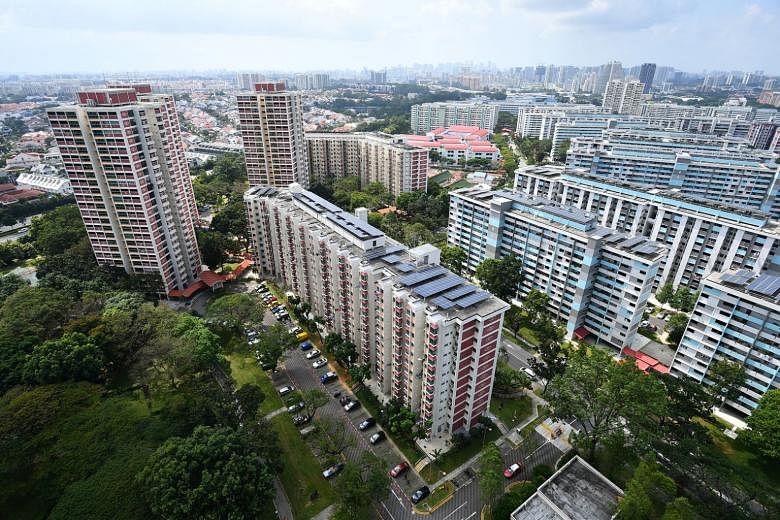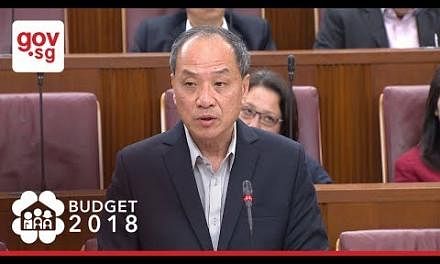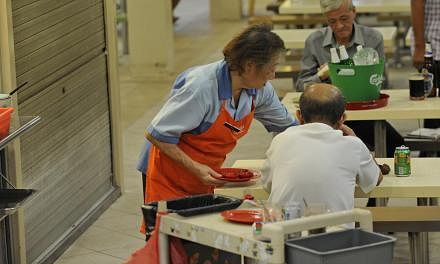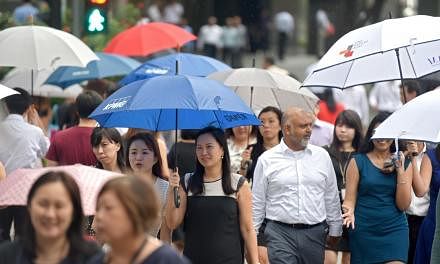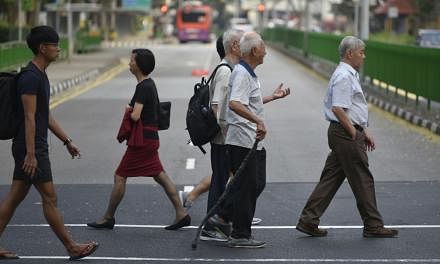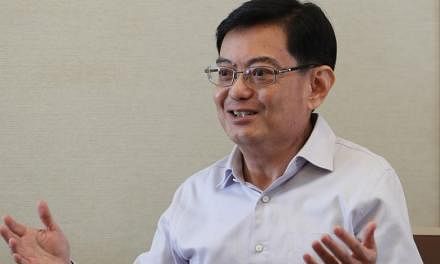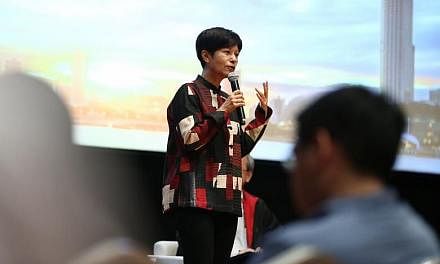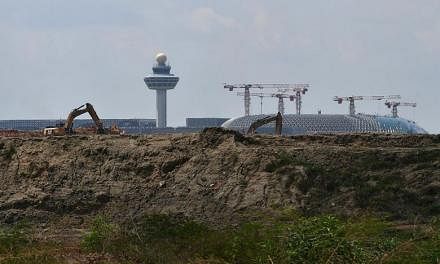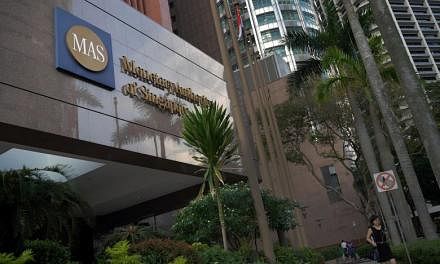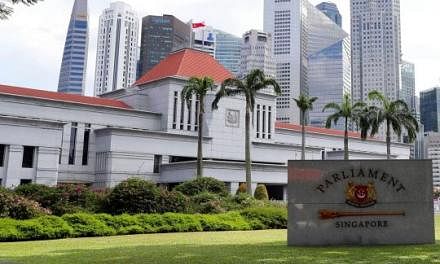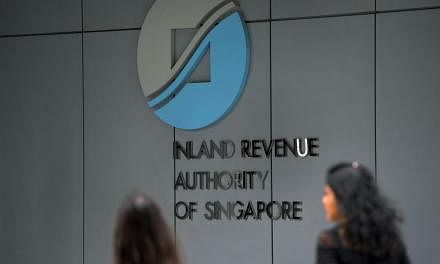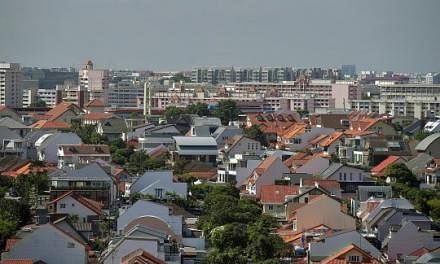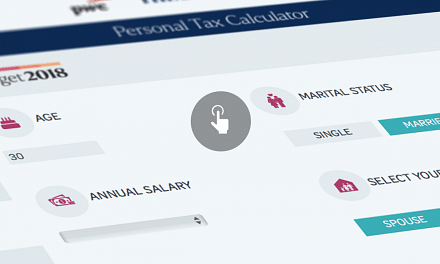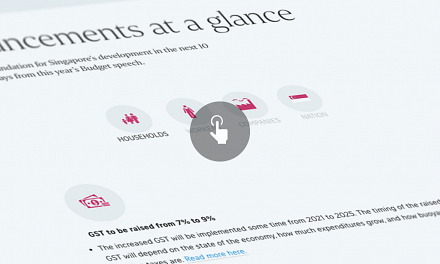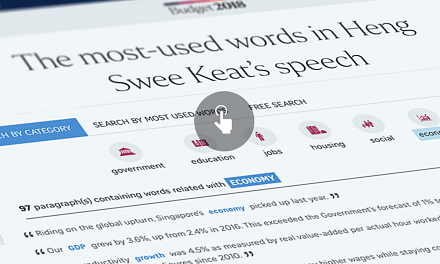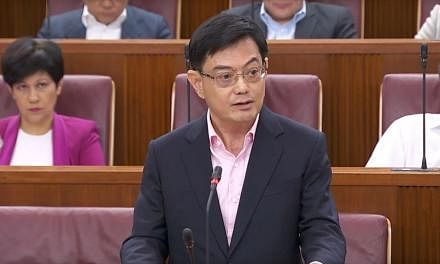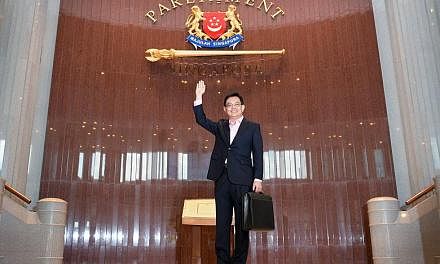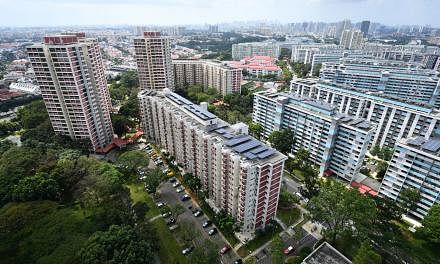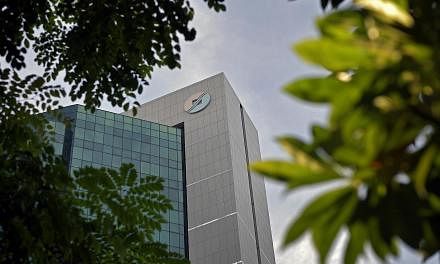SINGAPORE - Finance Minister Heng Swee Keat presented the Budget before Parliament on Monday (Feb 19), laying out the Government's revenue and expenditure for the 2018 financial year.
The crop of announcements included raised GST, enhancements to the Proximity Housing Grant, and a one-off "hongbao" from the previous year's bumper Budget surplus.
Here are nine things from this year's Budget announcements that will affect ordinary Singaporeans.
1. Increased GST
The goods and services tax will be increased for the first time in more than a decade, by 2 percentage points.
Last year, Prime Minister Lee Hsien Loong said raising taxes was "not a matter of whether, but a matter of when", sparking speculation among economists and tax specialists about the type of increase and when it would kick in.
The increased GST will be implemented sometime from 2021 to 2025. Mr Heng said he expected that the Government would "need to do so earlier rather than later".
The timing of the raised GST will depend on the state of the economy, how much expenditures grow, and how buoyant existing taxes are, said Mr Heng.
To help lower-income households cope, the permanent GST voucher scheme will be topped up by $2 billion. Currently, $800 million is given out a year.
GST on publicly subsidised education and healthcare will continue to be absorbed.
2. GST to be imposed on digital imported services
Are you a keen user of streaming services such as Netflix and Spotify?
From Jan 1, 2020, such services from overseas suppliers will be taxed, even if they do not have a physical presence in Singapore.
Other examples of imported services include apps, listing fees on electronic marketplaces, software, and online subscription fees.
The GST will also cover imported services for businesses here, such as marketing, accounting, IT and management services.
However, the move will not affect e-commerce for goods, despite speculations by observers earlier.
3. One-off SG Bonus for all Singaporeans
If you are 21 years old and above, you will receive a one-off "hongbao" of up to $300 this year.
Those who earn $28,000 and below a year will receive $300, while those earning $28,001 to $100,000 will receive $200.
Singaporeans who earn more than $100,000 a year or who own more than one property will receive $100.
The bonus, which will cost the Government $700 million, comes from this year's Budget surplus of $9.6 billion.
4. Enhanced Proximity Housing Grant
Families buying a resale flat to live with their parents or children will now receive an increased grant of $30,000, compared to $20,000 previously.
The grant amount for families buying a resale flat to live near their parents or children will remain at $20,000.
The grant will also be increased for singles. Those who buy a resale flat to live with their parents will receive a $15,000 grant, compared to $10,000 previously.
Singles who buy a resale flat near their parents will also receive a grant of $10,000.
The criterion for determining what is "near" will also be revised to within 4km, instead of the current 2km.
5. Buyer's Stamp Duty rates for residential properties to increase
In a surprise announcement, Mr Heng said the top marginal Buyer's Stamp Duty (BSD) will increase from 3 per cent to 4 per cent.
The new top marginal rate will apply to the portion of residential property value which is in excess of $1 million.
The change will apply to all residential properties acquired from Tuesday (Feb 20), he added.
Rates for non-residential properties remain unchanged at 1 per cent to 3 per cent.
6. Tobacco excise duty to increase by 10%
Tobacco excise duty will increase by 10 per cent in efforts to discourage consumption of tobacco products.
The increased duty will take effect from Monday (Feb 19), said Mr Heng.
7. Foreign domestic worker levy
From April 1, 2019, levies will be increased for foreign domestic workers that are employed without levy concession.
Monthly levy will be raised from $265 to $300 for the first foreign domestic worker employed without levy concession, and from $265 to $450 for the second worker employed.
While the levy concession of $60 for households with children below 16 years old, seniors or persons with disabilities will remain the same, the qualifying age for seniors will be raised from 65 to 67 years old.
However, households that currently enjoy the levy concession under the aged person scheme will continue to do so even after the new framework kicks in on April 1 next year.
8. Additional Utilities-Save
To cover the impact of the new carbon tax on households, the Government will be increasing the amount of Utilities-Save (U-Save) under the GST voucher for three years.
From 2019 to 2021, households will receive $20 more in their annual U-Save.
This will help to cover the annual impact of the carbon tax, which is estimated to result in up to an average of $13.70 in additional electricity and gas expenses.
Households are expected to use the three-year period to adjust to the new carbon tax, and take efforts to reduce their electricity and gas consumption.
9. Service and Conservancy Charges rebate
The service and conservancy charges rebate will be extended for another year for eligible Housing Board households.
The rates remain the same as last year.
Households that live in one- and two-room flats will receive 3.5 months of S&CC rebate, while those in three- and four-room flats will receive 2.5 months of rebate.
Households living in five-room flats will receive two months of rebate, while those living in executive or multi-generation flats will receive 1.5 months of rebate.
